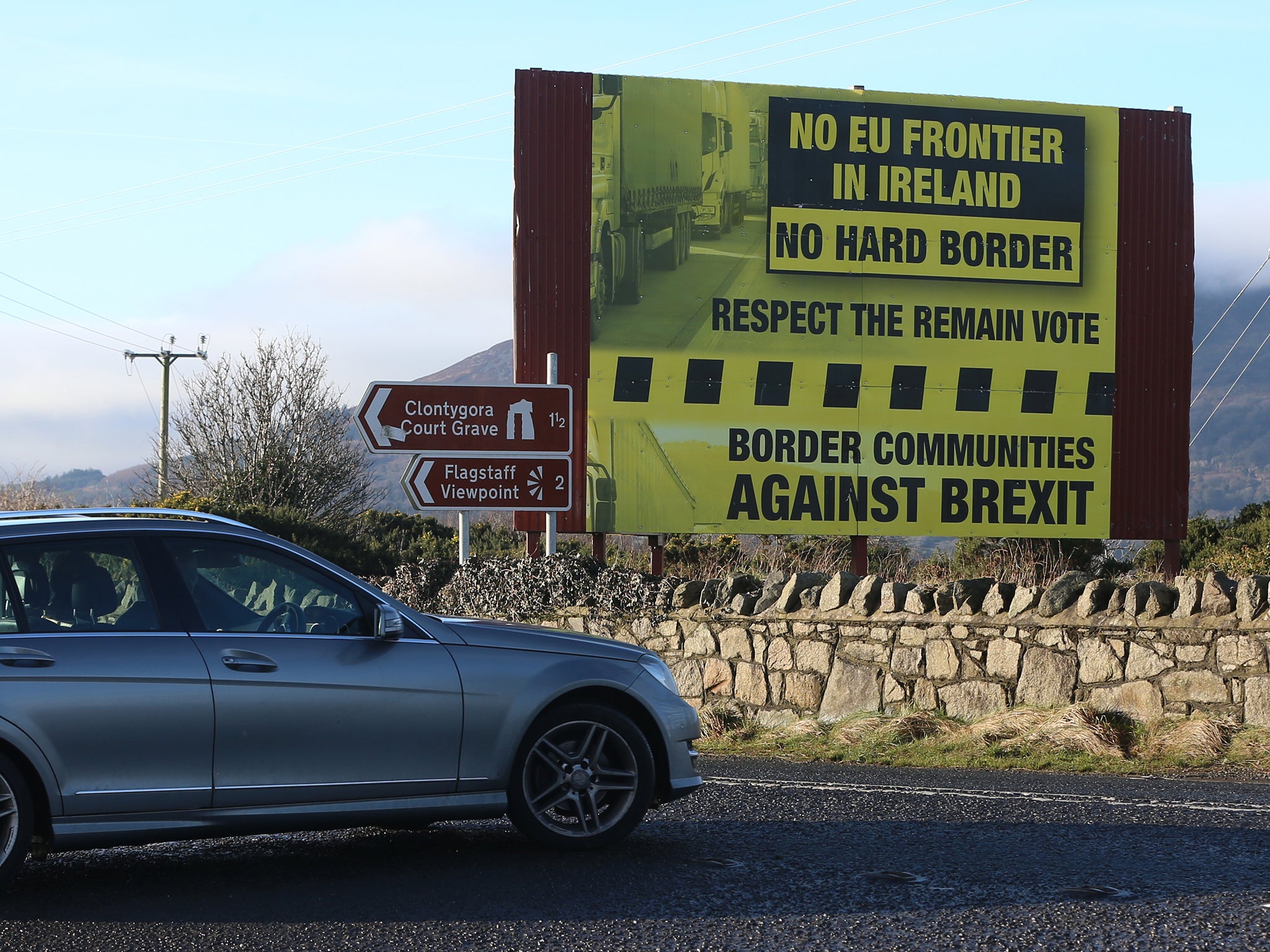Brexit: UK promises the Irish Government no 'physical infrastructure' on the Northern Ireland border
Document will risk clash with Dublin by ruling out its proposal for the Irish Sea to become post-Brexit border as 'not constitutionally or economically viable'

Your support helps us to tell the story
From reproductive rights to climate change to Big Tech, The Independent is on the ground when the story is developing. Whether it's investigating the financials of Elon Musk's pro-Trump PAC or producing our latest documentary, 'The A Word', which shines a light on the American women fighting for reproductive rights, we know how important it is to parse out the facts from the messaging.
At such a critical moment in US history, we need reporters on the ground. Your donation allows us to keep sending journalists to speak to both sides of the story.
The Independent is trusted by Americans across the entire political spectrum. And unlike many other quality news outlets, we choose not to lock Americans out of our reporting and analysis with paywalls. We believe quality journalism should be available to everyone, paid for by those who can afford it.
Your support makes all the difference.Britain is promising the Irish Government there will be no “physical infrastructure” on the border with Northern Ireland after Brexit, after rising tensions between the two governments.
In a “position paper” ahead of the next round of talks, London will say “there will be no return to the hard borders of the past” – insisting customs posts, for example, will not be necessary.
Britain will hold out the hope of no border at all, if attempts to forge a long-term “alignment” of customs arrangements with the EU prove successful.
But, if customs arrangements are merely “streamlined”, larger traders would face some checks but smaller traders would not, London will warn.
A briefing ahead of the paper’s publication does not rule out changes even if Brussels agrees to a “temporary customs union”, for the first two years or so after Brexit, in 2019.
And the document will risk a clash with Dublin by describing its proposal for the Irish Sea to become the post-Brexit border with the UK as “not constitutionally or economically viable”.
The UK would protect the Common Travel Area, which allows Irish people to live and work on either side of the border, it says.
A UK Government source said: “Both sides needs to show flexibility and imagination when it comes to the border issue in Northern Ireland and that is exactly what our latest position paper will do.
“Top of our list is to agree upfront no physical border infrastructure - that would mean a return to the border posts of the past and is completely unacceptable to the UK.
“Our paper sets out some creative options on customs and shows the priority we place on making progress on this.”
In 2015, Northern Ireland sold £10.7bn of goods to Great Britain and a further £2.7bn to Ireland, the Department for Exiting the European Union (DExEU) said.
Meanwhile, Great Britain exported £13.6bn worth of goods to Ireland, and imported £9.1bn. “We’re prioritising finding a solution that protects businesses’ ability to access these important markets,” the source added.
The paper is published after Leo Varadkar, the Irish prime minister, made clear his frustration with Britain’s failure to come up with workable border proposals in the 14 months since last year’s EU referendum.
Dublin fears the impact of even “light touch” customs – using smart technology and spot checks - on the peace process in the North and has urged Britain to stay in the EU customs union.
As a fallback, Mr Varadkar proposed the Irish Sea becoming the border with the UK for the whole of Ireland – an idea firmly rejected by London today.
Any solution – short or long-term – depends on the EU agreeing to Britain’s customs proposals, unveiled on Tuesday, which were strongly criticised by some Brussels figures.
Guy Verhofstadt, the European Parliament’s negotiator, described them as a “fantasy”, while Michel Barnier, his Commission counterpart, insisted the exit settlement must be agreed first.
A failure to reach agreement on the Irish border will throw into jeopardy the Prime Minister’s hopes of an autumn start to talks on post-Brexit trade with the EU.
Brussels has insisted sufficient progress must be made on Northern Ireland, citizens' rights and the so-called “divorce bill” before the negotiations can move forward.
Join our commenting forum
Join thought-provoking conversations, follow other Independent readers and see their replies
Comments